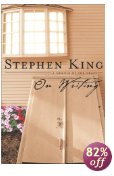See original text on
Amazon.ca.
MacArthur fellow and UCLA evolutionary biologist Diamond (The Third Chimpanzee, 1992, etc.) takes as his theme no less than the rise of human civilizations. On the whole this is an impressive achievement, with nods to the historians, anthropologists, and others who have laid the groundwork. Diamond tells us that the impetus for the book came from a native New Guinea friend, Yali, who asked him, ``Why is it that you white people developed so much cargo and brought it to New Guinea, but we black people had little cargo of our own?'' The long and short of it, says Diamond, is biogeography. It just so happened that 13,000 years ago, with the ending of the last Ice Age, there was an area of the world better endowed with the flora and fauna that would lead to the take-off toward civilization: that valley of the Tigris and Euphrates rivers we now call the Fertile Crescent. There were found the wild stocks that became domesticated crops of wheat and barley. Flax was available for the development of cloth. There was an abundance of large mammals that could be domesticated: sheep, goats, cattle. Once agriculture is born and animals domesticated, a kind of positive feedback drives the growth toward civilization. People settle down; food surpluses can be stored so population grows. And with it comes a division of labor, the rise of an elite class, the codification of rules, and language. It happened, too, in China, and later in Mesoamerica. But the New World was not nearly as abundant in the good stuff. And like Africa, it is oriented North and South, resulting in different climates, which make the diffusion of agriculture and animals problematic. While you have heard many of these arguments before, Diamond has brought them together convincingly. The prose is not brilliant and there are apologies and redundancies that we could do without. But a fair answer to Yali's question this surely is, and gratifyingly, it makes clear that race has nothing to do with who does or does not develop cargo. (Book- of-the-Month Club/History Book Club/Quality Paperback Book Club selection) -- Copyright ©1997, Kirkus Associates, LP. All rights reserved. --This text refers to the Hardcover edition.



